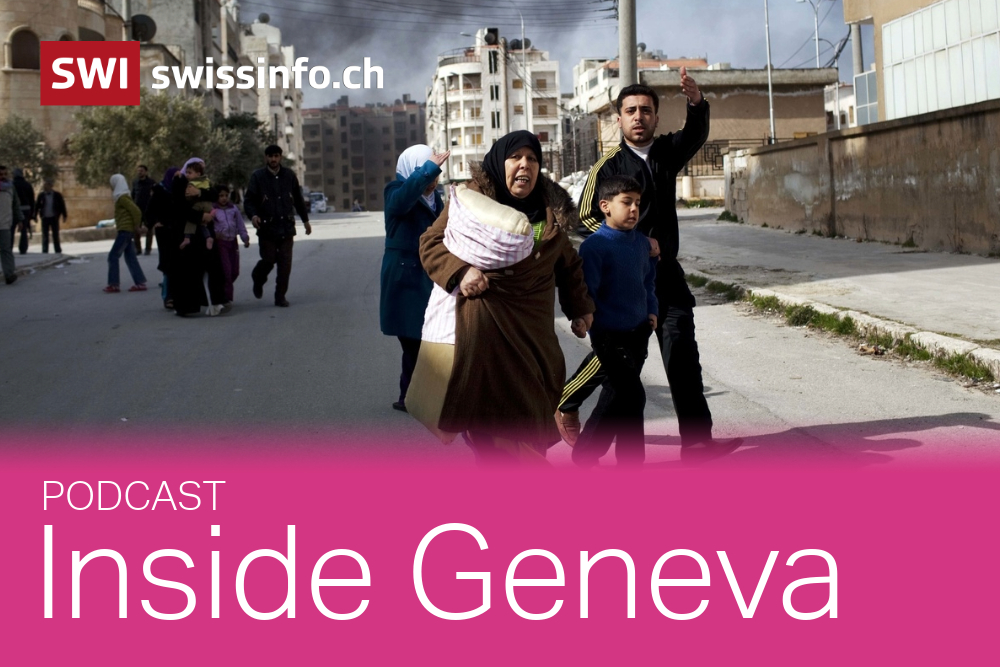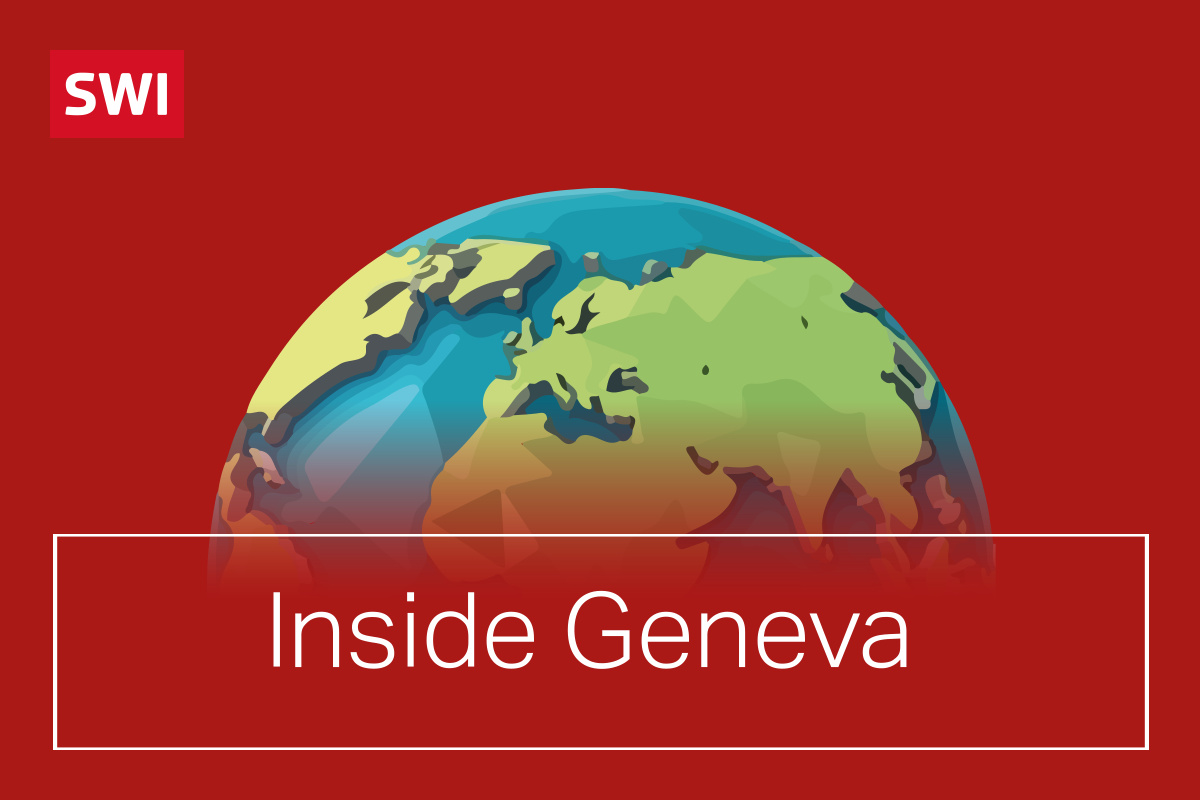
Summer Profile Tammam Aloudat: doctor, humanitarian and journalist
Summer is here again, and it’s time for Inside Geneva to bring you our series of summer profiles.
Regular listeners to the podcast may remember last summer, when we heard from, among others, Chris Lockyear of MSF, Antonia Mulvey of Legal Action Worldwide, and Fereshta Abbasi of Human Rights Watch – a tireless defender of women’s rights in Afghanistan. Anyone who hasn’t heard them, or wants to hear them again, can find them all here.
This year we’ve got another great line up for you, from a candidate to be a judge on the international court of justice, to a senior aid worker in Gaza, to one who started his humanitarian career in Gaza way back in the 1980s – and much more.
We start with a man who has also spent a good part of his life in humanitarian work, but has now made the – perhaps surprising – switch to journalism.
Tamman Aloudat is from Syria, and lived there until he was in his mid 20s. He remembers it as a “partially very typical middle-class life and in other parts fairly outside the norm.” Our clichéd western ideas of life anywhere in the Middle East do not necessarily coincide with Aloudat’s reality. He had a relatively secular upbringing; his father came from a village in southern Syria, but did a PhD in what was then the Soviet Union. He was never “in an organised party,” Tammam remembers, but “remained a devout socialist all his life.”

More
Inside Geneva’s Summer Profiles: Tammam Aloudat
Brutal police state
At the same time, Aloudat was growing up under the Assad regime, “a police state governed by a vicious dictator.” Most jobs were linked to the regime, but a few professions, such as engineering or medicine, allowed a certain amount of freedom. Aloudat decided on medicine.
Work with the Syrian Arab Red Crescent led to a chance encounter with an official from the British Red Cross, and the opportunity to work outside Syria. “It was him who gave me a contract with the British Red Cross and sent me to Iraq,” he tells Inside Geneva. It was summer 2003. “I mean, arguably not the nicest thing to do to someone, but it was exactly what I asked for.”
Iraq, Aceh, and disillusion
Arriving in Baghdad shortly after the United States-led invasion and ousting of Saddam Hussein, Tammam remembers that at first the mood was optimistic. Aid workers could move around freely, there was a sense that good things could be achieved. But the bombing of the United Nations headquarters in August 2023, followed by another attack, this time on the ICRC’s Baghdad offices in October, changed all that. “This whole celebratory mode of ‘we liberated the country’ went to hell quite fast”, he remembers.
The growing insecurity, increased attacks on aid workers, and the sometimes questionable activities of US advisers and private security companies, created growing unease.
“One of the tools of the American invasion,” Tammam reflects now, “was allowing humanitarianism to function semi-independently and say that, ‘whatever problems arise, we will solve them through those guys.’’
But the Iraq experience did not put Aloudat off humanitarian work. His next posting was to Aceh in Indonesia, in the immediate aftermath of the Asian Tsunami. That was, he said, the first time he really saw the “humanitarian circus”, where there were so many aid workers that the entire economy changed, and “we went from having our food served in a banana leaf to having a pizza restaurant.”
Regular listeners to Inside Geneva may remember that Tammam was our guest for the first time way back in 2021, where we discussed whether humanitarian agencies need to be “decolonised”. That episode remains one of the most listened to, and it reflects some of the thinking Aloudat and many others in the aid community have been doing about their work.

More
Do we need to decolonize aid?
‘Delusional neutrality’
Now Aloudat suggests aid agencies need to ask searching questions of themselves: when are they helping, and when are they perpetuating the problem? Or, as he began to feel in Iraq, “being instrumentalised by the invading power?”
He questions what he calls the “delusional understanding of neutrality as silence,” in which many humanitarian organisations interpret the traditional values of neutrality and impartiality to mean never calling out an aggressor, or a war criminal.
He also takes issue with those who say that even some humanitarian assistance is better than nothing. “The question is, can we afford to only put roofs over people’s heads and do nothing about the system?” he asks.
“If your house was bombed for the first time, I understand, if it was bombed for the 17th time? And instead of a house, you have a tarpaulin and instead of food, you have animal feed or grass to eat, like the case is today in Gaza? Can we still say humanitarianism is better than nothing?”
It’s just one of a number of points he makes in our interview that other aid workers may dispute. It’s a fascinating discussion, and certainly made me think about some of the “truths” about humanitarianism that I have held on to all these years.
To hear the interview in full, and find out about his transition from aid worker to journalist (he is currently CEO of the New HumanitarianExternal link) listen to Inside Geneva, and tell us what you think!
vm

In compliance with the JTI standards
More: SWI swissinfo.ch certified by the Journalism Trust Initiative




























You can find an overview of ongoing debates with our journalists here . Please join us!
If you want to start a conversation about a topic raised in this article or want to report factual errors, email us at english@swissinfo.ch.